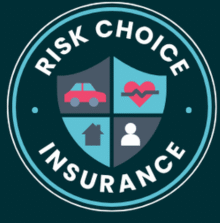
Although running a business comes with hazards, many of which people ignore is what would happen should one become handicapped. Designed to safeguard your business and your livelihood should you be unable to work due to illness or injury, business disability insurance Whether you run a professional practice, a tiny startup, or a developing company, having the correct disability insurance in place could make all the difference between keeping afloat and closing.
We will discuss in this post what business disability insurance is, how it operates, the several kinds of coverage that are offered, who should have it, and how to decide on the best policy for your company.
Explain business disability insurance.
Designed specifically to give financial help should a business owner or key employee become disabled and unable of performing their work responsibilities is business disability insurance. Business disability insurance is designed to maintain the company going like-minded, unlike individual disability insurance, which substitutes personal income.
Each of the numerous forms of company disability insurance has a specific use:
Business Overheads Expense (BOE) Insurance
Important Person’s Disability Insurance
Disability Buy-Sell Insurance
Disability Insurance Protection for Loans
Every one of these helps your company stay free from the financial effects of a disability event.
The Value of Business Disability Insurance
If you run your business and a long-term illness or accident strikes, your operations could stop. One in four twenty-year-olds today will become incapacitated before they reach retirement age, claims the Social Security Administration.
Here are the reasons company disability insurance is so crucial:
Income Protection: Should your primary income come from taxes, a handicap could completely end income.
Continuity lets the company keep paying utilities, rent, employee wages, and other overhead costs.
It protects the value you have created for your company so that, should necessary exit or recovery be sought for, you may do so with a fair value.
Key person coverage is sometimes needed as part of fundraising or buy-in agreements by investors and partners.
Business Disability Insurance Types:
One should consider business overhead expenses (BOE) insurance.
When you’re disabled, BOE insurance pays your daily fixed business expenses. These could include:
Payments on a mortgage or rent
Tools and upkeep
wages and salaries
Office tools
Legal and accounting expenses
Usually with short benefit periods—often up to 24 months—BOE insurance are tax-deductible as a corporate expense.
2. Important Person Disability Insurance
Key person disability insurance can help cover missed income, recruiting, and training expenses should a specific person—you or an executive—became disabled. Your company depends on that person for vital contributions.
Usually the insurance owner, beneficiary, and premium payer is the company.
3. Buy-sell insurance for disabilities
Businesses having several owners would find this policy perfect. Should one partner become incapacitated long-term, the buy-sell agreement activates to let the other owners buy the share of the business owned by the disabled partner.
This shields all involved and helps to prevent disputes on corporate ownership interests.
4. Disability Income Protection for Loans
Should you become incapacitated and unable of producing money, this coverage helps pay back loan obligations whether you have taken out commercial loans or personal guarantees. This guarantees that your company credit will remain in good standing and prevents loan default.

Who would want business disability insurance?
1. Professionals Working for themselves:
Doctors, lawyers, consultants, and contractors depending on their capacity to work are among the most vulnerable people. Business income declines without them.
2. Small Business Owners: Should your company rely on your leadership or particular set of skills, a handicap could cause complete shutdown of operations.
Small to medium-sized owners and senior executives should give business disability insurance some thought to guarantee seamless operations and transfers.
4. Startups and Tech Founders: Often the lifeblood of operations in fast-paced situations is founders of tech startups. Losing one to a disability without a strategy can destroy the business.
How Does Business Disability Insurance Operatively Work?
Methodically Step-by-Side summary:
Underwriting and Application:
You seek coverage based on your job, income, company size, and health. Insurance companies could call for financial statements and medical tests.
Once accepted, your monthly premiums depend on the kind of coverage, benefit amount, elimination period (waiting period), and benefit period—that is, length of time benefits last.
Should you become disabled and fit the term in your policy, you make a claim.
Most insurance have a 30–to 90-day elimination period before benefits start.
Benefits Paid: Until you recover or reach the end of the benefit period, benefits are paid monthly per your insurance terms following the waiting period.
Required Coverage: How Much More?
Your company structure, size, and position will determine coverage. These are some basic rules:
Typically up to $50,000/month, BOE Insurance will match your average monthly spending.
Think on 1 to 2 times the annual income contribution made by the essential person.
Base your buy-sell coverage on the ownership value of every partner.
Match loan amounts and payment schedules for protection.
Dealing with a seasoned business insurance expert will enable you to customise a policy to fit your particular requirements.
Tax Conventions
Though usually tax-deductible, BOE Premiums are taxable.
Essential Person/Buy-Sell Premiums: Not tax-deductible, however normally benefits are obtained tax-free.
Loan Protection: Treated depending on the way the company is set up—ask your accountant.
Whenever you are thinking about insurance for your company, always speak with a tax advisor.
Selecting Appropriate Corporate Disability Insurance
Keep in mind the following while evaluating policies:
1. Definitions of Disability
If at all possible, make sure the policy defines “own-occupation”—that will help you even if you can do anything else but cannot fulfil your particular employment position.
2. Value and Period of Time
This should line up with your actual overhead and income requirements. Not underinsure or overinsure.
3. Elimination Times
Though they have greater premiums, shorter elimination periods allow speedier payouts.
4. Policy Riders in Policy
Additional value can come from optional features as residual benefits, future increase options, or inflation protection.
5. Insurance Industry Profile
Select businesses with strong claims-paying records and financial performance. Search for suppliers including Guardian, MassMutual, Principal, or The Standard.
Real-World Case Study: Sarah’s Legal Practice
Sarah is the lone practicing attorney at a small law practice she owns. She missed over a year of work following a stroke. She thankfully had key person disability insurance in addition to BOE. While the key person policy helped find a replacement attorney to keep operations running, the BOE policy covered the rent and staff pay for her company for 18 months. Her business would have fallen apart without this coverage.
Typical Stories About Business Disability Insurance
First myth: “I’m too young and healthy to worry about it.”
Illness and accident can strike anyone at any age. Also typically are greater rates obtained by younger applicants.
Myth 2: “I have enough personal disability insurance.”
Just as equally important are loans and company expenses, which personal policies would not cover.
The third myth is “It’s too expensive.”
Usually, premiums are significantly less than the expense of closing your doors or defaulting on responsibilities. Many policies give you varied choices to suit your income.
Last Words
Business disability insurance is really essential for safeguarding all you have created—not only a luxury. From managing fixed expenses and preserving business continuity to guaranteeing equitable changes in partnerships, the correct coverage can protect your livelihood when most needed.
Now is the moment to assess your risks and create a strategy regardless of your level of solo entrepreneurship or small team management. Do not wait till infirmity strikes. Now protect your company and your financial future.
